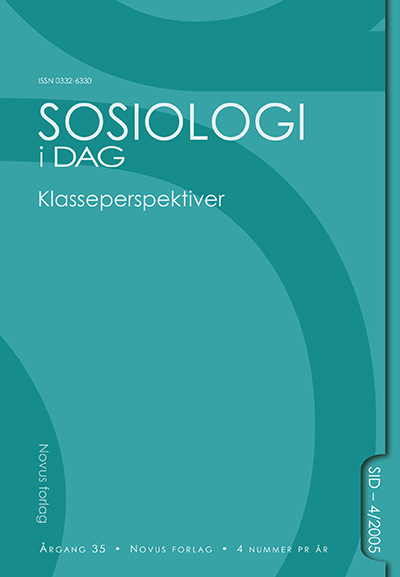Sammendrag
Abstract
In this article, it is argued that new football supporters tend to aspire downwards in their attempts to be accepted as authentic supporters. By this, it is meant that the historical traditions of football as a working class sport lead to the assumption (often mistakenly) that current fan cultures in football somehow constitute an authentic expression of traditional working class culture. Football supporters stress the importance of loyalty and passion, and of being critical towards the increasing commercialization of the game. Football authorities have in many ways succeeded in developing football into an important part of the culture industry since the 1980s. The middle classes are attrac-ted to the game by increased merchandising and improved facilities at more modern football arenas. Modern top football has become an important part of public life. From this fact, it is reasonable to assume that the alleged working class culture is marginalized. However, the new middle classes do not seem to have established any cultural hegemony in football culture. Rather, they are trying to internalize the traditions of the core groups of supporters. It is concluded that know-ledge of the "working class" traditions of football serves as football-cultural capital. Some examples are considered, including the work of Nick Hornby on football.
Keywords: Football, class identity, commercialization of football
Authors who publish with this journal agree to the following terms:
Â
- Authors retain copyright and grant the journal right of first publication, with the work 1 year after publication simultaneously licensed under a Creative Commons Attribution License that allows others to share the work with an acknowledgement of the work's authorship and initial publication in this journal.
- Authors are able to enter into separate, additional contractual arrangements for the non-exclusive distribution of the journal's published version of the work (e.g., post it to an institutional repository or publish it in a book), with an acknowledgement of its initial publication in this journal.
